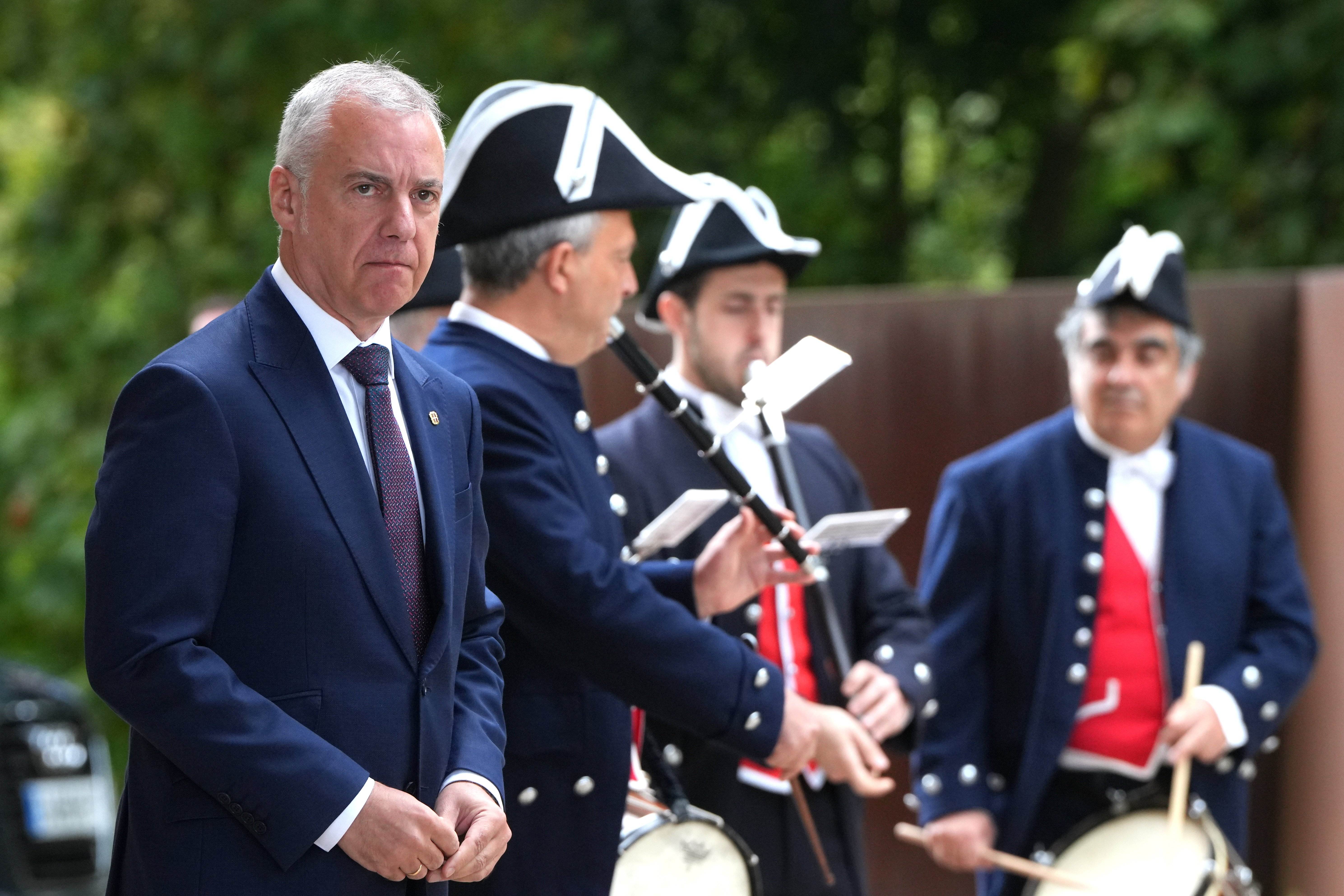During times of investiture, the significance read into any gesture is magnified. And the call by the Basque lehendakari, Íñigo Urkullu, to reinterpret the Spanish Constitution and advance "toward a plurinational Spain" has been received with a certain coolness by the Socialist (PSOE) representatives of the Spanish government and by most leaders of the People's Party (PP). From the Moncloa palace, acting presidency minister Félix Bolaños asserted that it was a "very legitimate" proposal that requires "a constructive debate", while the general coordinator of the PP, Elias Bendodo, stated that his party has "limits" that "will never be exceeded".
The proposal has special relevance because it comes from Íñigo Urkullu, of the Basque Nationalists (PNV), the partner that everyone is seeking at Spain's investiture dance. Both right and left. In an opinion article published this Thursday in the newspaper El País, the Basque leader set out a proposal for an institutional deepening of the plurinational character of the Spanish state, and in particular, developing and multiplying the levels of self-government in Euskadi, Catalonia and Galicia, through the device of a constitutional conference which, he asserts, should be carried out to reinterpret the Spanish Constitution. That is, reinterpreting the text as it stands, without touching a single comma.
At the moment, the PNV is, alongside Together for Catalonia (Junts), the object of desire for both major Spanish parties and this places them in a privileged position. Taking advantage of this space, Urkullu, whose party governs Euskadi with the Basque Socialists, has taken a stand at a time of maximum political sensitivity. The fact is that the proposal went down better with the bloc whose investiture numbers look the best - that is, the left, even if an investiture of Pedro Sánchez is still hypothetical. From the acting Spanish government, minister Bolaños stated this Wednesday that Urkullu's proposal is "very legitimate", but that the executive is refusing it because it is not theirs. "It's not our proposal, I think anything that contributes to the debate is always positive: to have a debate that is constructive, when the whole world is aware that we have to understand each other", he said, applauding "all the proposals that are made to find points of balance and agreement between different positions, within the constitutional framework".
With the Basque Nationalists, the PSOE takes care to show good manners, so important in politics. Potential allies must be pampered. The PP also ensured the politeness of its response this Thursday, since it still aspires to convince the Basque conservative nationalists to unlock the four votes it needs for an absolute majority of 176. Despite the multiple times that the PNV has closed the door on Feijóo's overtures, the PP's general coordinator Elias Bendodo stated that he "understands" the Basque president's proposal, although he affirmed that the PP has "limits": "We can dialogue with everyone, but we have limits set by the Constitution and that we will never go beyond".
Meanwhile, the reaction from the Catalan government was also cordial, while less than enthusiastic: Catalan presidency minister Laura Vilagrà expressed "respect" for the proposal this Thursday, while noting that "our proposal is another". "The social and political majority in Catalonia favours self-determination and amnesty, and therefore that is the negotiation framework that we propose," she said.
Ayuso's belligerent response to "plurinational Spain"
However, the reception given to Urkullu's proposal by the different political leaders who have cards to play in the investiture process contrasted with the reaction of Isabel Díaz Ayuso. The president of the Madrid Community responded to the Basque proposal with a belligerent discourse against plurinational Spain. Speaking at the PP's opening of the new political term in Madrid, and in front of Alberto Núñez Feijóo, the Madrid leader criticised the "supposed plurinationality" of Spain which, in her opinion, "denies national sovereignty, the rights of everyone and centuries of history". According to her diagnosis, Pedro Sánchez and his nationalist allies want to turn Spain into "a plurinational secular federal republic".

